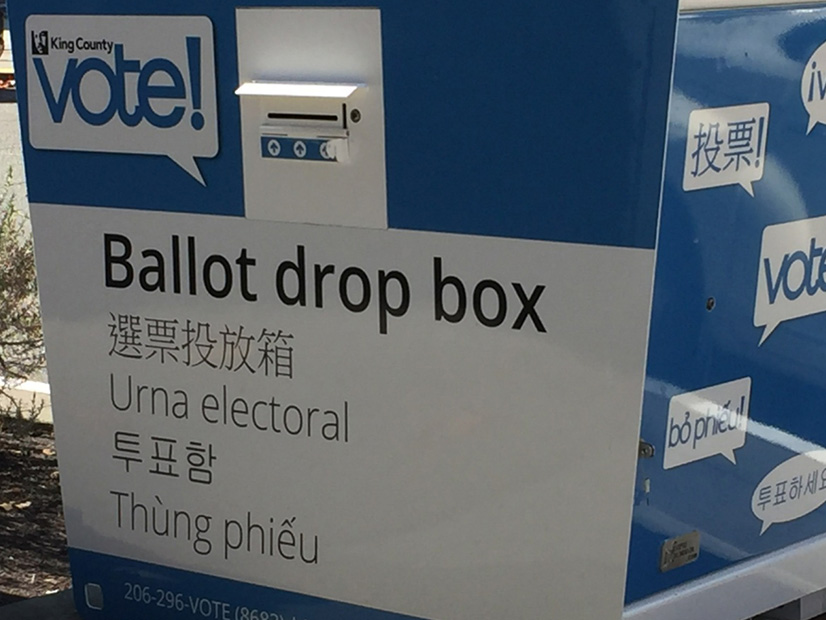
Washington voters showed overwhelming support for the state’s fledging cap-and-invest system Nov. 5 when they firmly rejected a ballot measure that sought to repeal the program.
I-2117, which would have repealed the 2021 Climate Commitment Act, failed on a 62%-38% vote.
The program, which is administered by Washington’s Department of Ecology, auctions permits that allow industrial polluters to emit greenhouse gases and has raised $2.1 billion for the state to fund environmental projects since it went into effect in early 2023. Most of the money is earmarked for programs to combat climate change, from electric ferries to alternative energy projects, salmon habitat restoration and electric vehicle charging stations.
Critics had blamed the program for gasoline price increases of 21 to 50 cents per gallon, but fuel prices have fluctuated since the auctions began, making it difficult to pin down the program’s impact because numerous other factors also influence prices. (See Cap-and-trade Driving up Washington Gasoline Prices, Critics Say.)
Funded by suburban Seattle hedge fund manager Brian Heywood, I-2117 was one of four initiatives on the state ballot Nov. 5 supported by Heywood’s Lets Go Washington organization and the state Republican Party hoping to repeal four state laws passed since 2021. Three of those initiatives, including the one to revoke cap-and-invest, failed. The one successful initiative, I-2066, which forbids the state from implementing any future bans on using natural gas, passed narrowly.
Washington is negotiating with California and Quebec on the creation of a joint carbon market by 2025 to lower auction prices for emissions, which could lead to lower fuel prices in all three jurisdictions. The effort could even expand as other states, such as New York, watch the market’s development closely as they consider setting up similar programs that would link up with the alliance.


